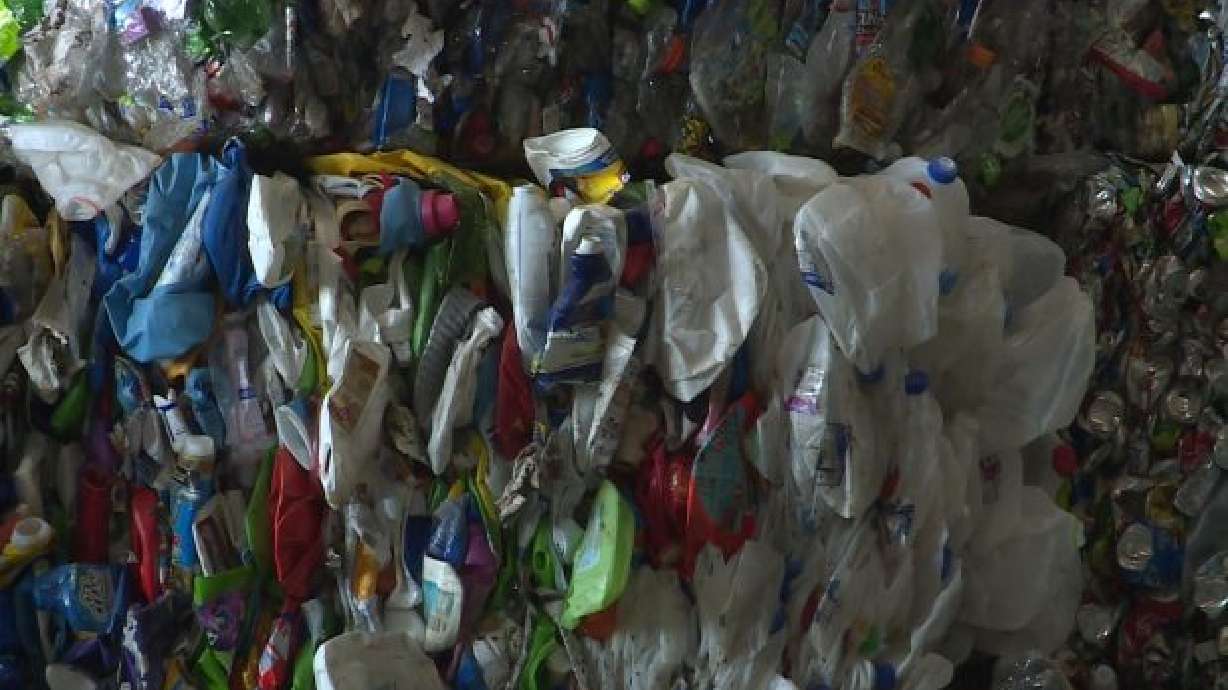Estimated read time: 3-4 minutes
This archived news story is available only for your personal, non-commercial use. Information in the story may be outdated or superseded by additional information. Reading or replaying the story in its archived form does not constitute a republication of the story.
SALT LAKE CITY — Have you ever wondered whether all those numbered plastics, steel and aluminum cans, cardboard boxes and sheets of paper you've placed in your recycling bin ever actually get recycled? It's a common question. And, in Utah, it's really, really hard to say.
According to representatives at the Utah Department of Environmental Quality, there's not a distinct public agency responsible for promoting and regulating recycling in the state. Some portion of Utah's recyclables are, of course, recycled, but what portion, or rather what percentage, of recyclables are actually recycled and reused is unknown.
Historically, Utah's recycling facilities have not had reporting requirements, which has resulted in extremely limited data on how well Utah is processing its recyclable waste, according to the state agency.
Moreover, Utah's recycling laws are extremely limited. So, while it is the duty of the Department of Environmental Quality to maintain and carry out the state's recycling regulations, there's very little to carry out or enforce. And the result is an apparent system-wide case of recycling blindness, which has hampered the state's ability to evaluate and improve the efficacy of it's own recycling programs.
Whether it's well-intentioned individuals who discard nonrecyclables into their recycling bins — thus contaminating not only their own recyclables but their neighbor's recyclables, as well, (because they all go in the same truck); or state leaders and waste managers seeking to make systemic improvements to Utah's recycling infrastructure, the absence of data, laws, or a public agency responsible for promoting and regulating recycling represent considerable barriers to the state's ability to appraise or improve its recycling efforts.
What little data is available suggests Utah has made some improvements. And, following the 2024 legislative session, certain facilities are now required to submit annual reports that will hopefully help fill the data gap, which continues to plague Utah's recycling prospects.
What can you do?
In 2022, recycling facilities throughout the state were asked about "current practices, challenges and opportunities to improve recycling in Utah," according to the Utah Department of Environmental Quality. Two definitive suggestions emerged from the survey.
- Better education about what is and is not recyclable in order to prevent contamination.
- Greater support on a local and state level.
Experts agree, the most basic thing Utahns can do to improve the state's recycling prospects is to learn what is and what is not accepted in their curbside bins.
The Recycling Coalition of Utah has compiled a list of what it calls the "Super 6" recyclable materials, including dry and unsoiled cardboard boxes, paper, food boxes, aluminum cans, steel cans and plastic containers.
While the materials that are accepted in curbside recycling dumpsters vary somewhat throughout the state, these six items can help you learn the basics. Specialty recyclables, like glass, oil and tires need to be taken to appropriate collection points. Contact city-specific officials for additional guidance and regulations.
Beyond individual recycling practices, Utahns can also support a greater emphasis on recycling at the local and state level. A statewide community focused on reducing and recycling waste is perhaps the only way to overcome Utah's ongoing recycling blindness.
The Wasatch Integrated Waste Management District offers recycling tips for residents of Davis and Morgan counties. Wasatch Front Waste and Recycling District offers tips for Salt Lake County residents.








